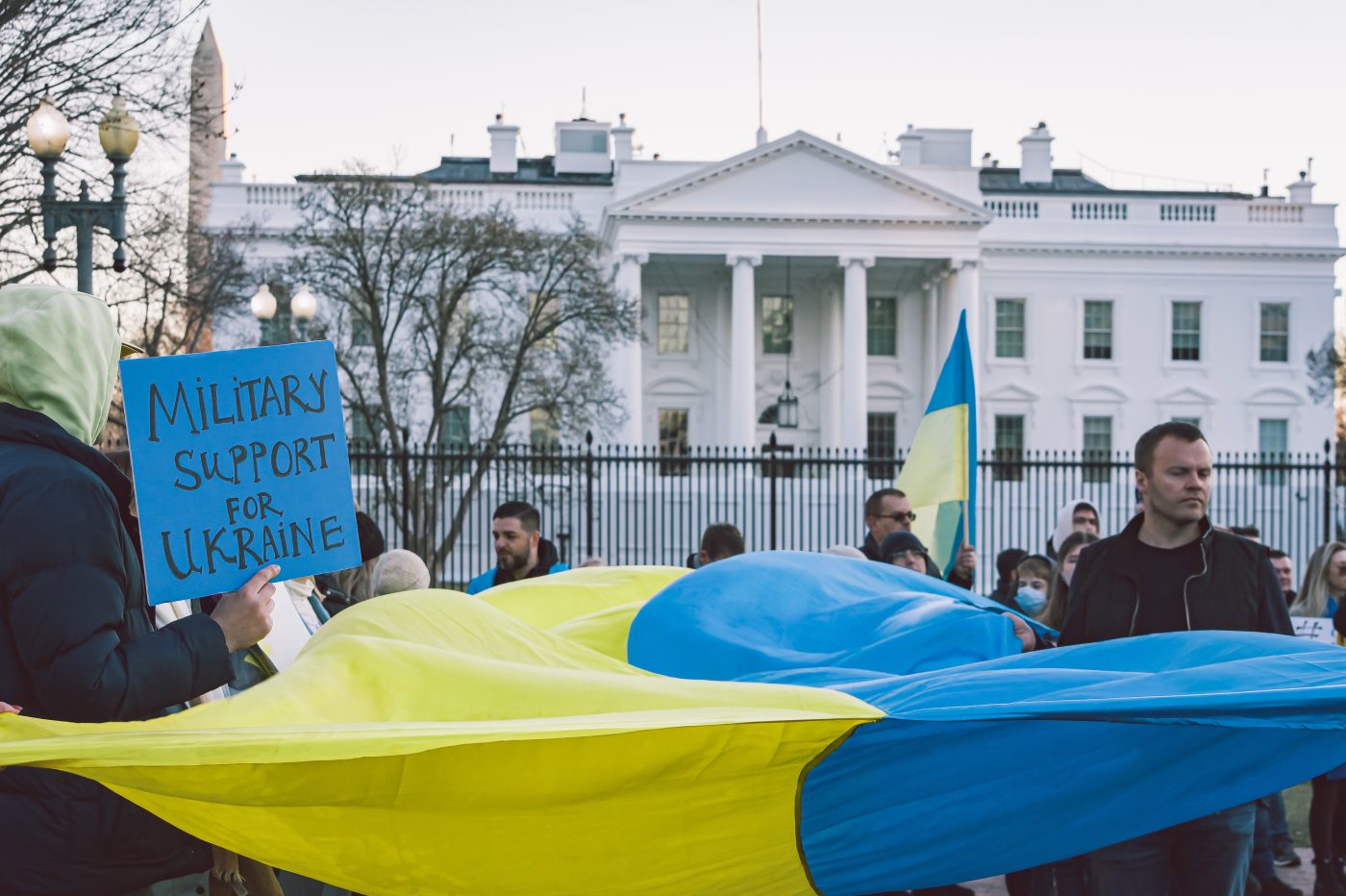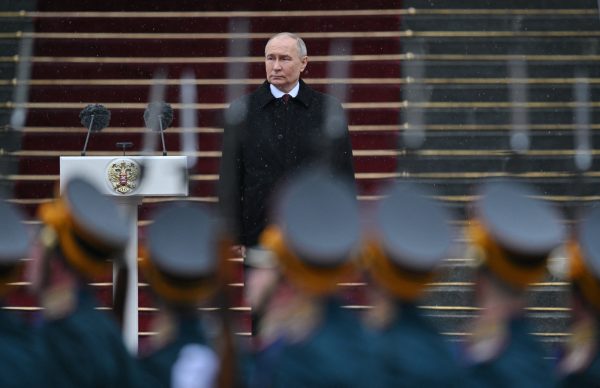The Pentagon announced on June 9 that another $2.1bn in military aid will be sent to assist Ukraine. This comes amidst shrinking public approval for United States involvement in the Russia-Ukraine war. A poll by The Associated Press-NORC Center for Public Affairs Research found that 48% of Americans still favored the US providing weapons to Ukraine in February 2023, compared with 60% in May 2022.
Opposition is stronger among conservatives than liberals. An April 2023 Brookings Institution poll found, for example, that only 28% of Republicans and 50% of Democrats favor sending combat aircraft to Ukraine. Libertarians, who favor minimal government spending and non-interventionist foreign policy, may feel even less supportive of US military aid to Ukraine.
Yet moral principles should inspire them to the opposite conclusion.
Many libertarians consider the Non-Aggression Principle (NAP) the cornerstone of their political philosophy. The Cato Institute, the largest libertarian think tank in the US, defines this principle as forbidding “‘aggression,’ which is understood to be any and all forcible interference with any individual’s person or property except in response to the initiation (including, for most proponents of the principle, the threatening of initiation) of similar forcible interference on the part of that individual.”
A common defense of this principle appeals to human rights: Every human has intrinsic, inalienable worth and dignity. Because all humans are equal in this way, no one is justified in infringing on the dignity of others. Someone should therefore be legally allowed to do whatever they want, so long as it doesn’t infringe on the ability of someone else to do the same. The adage “your right to swing your fist ends where my nose begins” encapsulates this concept more succinctly.
Extended to foreign policy, the NAP leads to non-interventionism: no state has the legitimacy to infringe on the rights of another nation to pursue its own goals. The US Libertarian Party platform maintains that “American foreign policy should emphasize peace with all nations, entangling alliances with none. We would end the current US government policies of foreign intervention including military and economic aid; tariffs; economic sanctions; and regime change.” This perspective has led libertarians to a good track record on issues like the War in Iraq, which most libertarians opposed even when the large majority of Americans supported it. Shortly before the Russian invasion of Ukraine, the Libertarian Party applied this non-interventionist philosophy to the subject in question: “Our position is clear: non-interventionism is the answer to the Ukrainian crisis and all future crises.”
As noted in the Cato Institute’s definition of the NAP, using force to defend oneself against the initiation of aggression is sometimes warranted. It must additionally be acknowledged that assisting another person in defending herself from aggression is also sometimes morally right. If my neighbor’s house is regularly assailed by thieves, and my neighbor asks for my baseball bat to help defend herself and her property, I may be morally justified, or even obligated, to lend her the bat. Likewise, if a country is being victimized by the illegitimate aggression of another country, other countries may be morally justified, or even obligated, to lend their support.
This approach allows libertarians to take a strong stand against regime changes while remaining open to, on rare occasions, providing military aid to countries being unjustly invaded. Libertarians can, in this way, clearly distinguish themselves from neoconservatives, who often favor regime changes and other interventions aimed at making other nations more democratic.
We should respect the sovereignty of each nation but are within our moral right to assist a nation whose sovereignty is being violated. Libertarians’ commitment to the NAP should inspire them to answer others’ cries for help against violators of the principle. By invading Ukraine, Russia violated the non-aggression principle as applied to foreign policy. Assisting Ukraine in its self-defense against Russia’s aggression should therefore not be ruled out on moral grounds. Pragmatic considerations, however, must still be carefully weighed.
We must think ahead and try to anticipate the potential unintended consequences of any intervention. Former Democratic presidential candidate Tulsi Gabbard, for example, stated at a February protest that US intervention in Ukraine “could turn at any moment into a direct conflict between the United States and NATO and Russia, a country that has more nuclear weapons than any other in the world.” Avoiding nuclear war must indeed be a top priority for the United States, yet time has proven that supplying weapons to Ukraine is insufficient to trigger Vladimir Putin’s nuclear aggression.
Military aid opponents also argue that it merely delays the war’s end, increasing casualties in the process. It is correct that peace must be our goal, but Russia will have disproportionate leverage in negotiations if Ukraine is unable to defend itself. A peace treaty must be reached as soon as possible, but its terms will be very unjust if Ukraine lacks leverage.
We must also consider the opportunity costs of any intervention. The capacity of the US to pursue its domestic priorities must be preserved to the greatest extent possible while providing Ukraine with the help it needs. The Republican Senator Rand Paul, in delaying an aid package to Ukraine last year, argued that “My oath of office is to the US Constitution, not to any foreign nation . . . We cannot save Ukraine by dooming the US economy.”
The advantage of military aid over financial aid is that the opportunity cost is lower. The US national debt exceeds $31 trillion (total US military aid to Ukraine so far is around $46bn) and domestic needs should be prioritized by the government. Many weapons, however, are currently sitting unused. Cutting financial aid while supplying some of these unused arms to Ukraine, without sending troops, is morally justified and should be supported by all Americans across the political spectrum.
Nathan Mech oversees the Acton Institute’s Collins Center for Abrahamic Heritage, which he helped found in 2022 to advance research and education from Jewish, Christian, and Islamic perspectives on economics, liberty, and human flourishing. Acton Institute, headquartered in Grand Rapids, Michigan, a think tank focusing on the intersection of morality and freedom.
The views expressed are those of the author and not of the Acton Institute.
Europe’s Edge is CEPA’s online journal covering critical topics on the foreign policy docket across Europe and North America. All opinions are those of the author and do not necessarily represent the position or views of the institutions they represent or the Center for European Policy Analysis.





